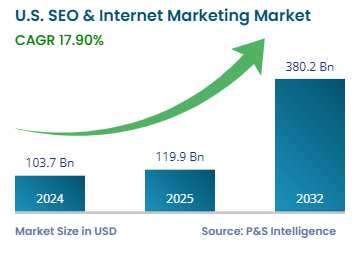- AI chatbots like ChatGPT are changing how people search for information, moving from search engines to answer engines.
- Marketers need to adapt to Generative Engine Optimization (GEO) and Artificial Intelligence Optimization (AIO) to ensure their content is cited by AI.
- Creating high-quality, structured content, establishing authority, staying agile, and embracing conversational content are crucial for success in the age of AI.
AI seems to be making its way into every aspect of business.

From AI-powered customer service bots to automated sales forecasting to personalized email subject lines that know more about your mood than your spouse, it’s clear the machines aren’t just coming — they’ve already moved into the cubicle next to yours.
But there’s one aspect of AI that for many companies will have a more immediate and deeper impact on their bottom lines than many people realize.
Imagine it’s just a couple of years from now.
A marketing team, fresh off a rebrand and brimming with enthusiasm, has just launched a new website. Their number one goal is to draw traffic to the site to make sales.
The usual well-known methods to draw this traffic include email marketing, social media, and paid advertising. However, most marketers will tell you, their top priority is often “search engine optimization” (aka “SEO”) which aims to plop that link on the very first page of Google when someone searches for what they are selling.
They follow the SEO checklist to the letter: keywords, meta tags, blog content, backlinks. Everything looks perfect. They sit back, sip their artisan cold brew, and wait for the traffic to roll in.
But… crickets. The numbers don’t budge.
Why? Because lately, potential customers may never have reached for Google. They asked ChatGPT instead.

This represents a major change for the future of marketing. Suddenly, people aren’t just typing “best Thai restaurant in Nashville” into Google anymore. They’re asking ChatGPT and its AI cousins to plan their whole evening — “Find me a cozy Thai place near downtown and tell me what to order if I’m vegan and allergic to peanuts.”
It’s a generally accepted concept that “Marketing leads to sales, sales leads to profit, and profit leads to success.” If marketing fails, everything else could fall apart.
Chatbots like ChatGPT are not search engines. They’re answer engines. Instead of giving you a list of links to sift through, they give you one (usually) well-worded response. It’s like jumping from the Dewey Decimal System to having your own personal librarian who already knows what you’re looking for.
That means fewer people are clicking on links. And fewer clicks mean less traffic from traditional SEO. For marketers, this is both terrifying and exciting. Terrifying because the old playbook is rapidly becoming outdated. Exciting because of the new opportunities this change will bring with it.
There are a couple of new acronyms to sprinkle into your marketing meetings: GEO (Generative Engine Optimization) and AIO (Artificial Intelligence Optimization). These are the new frontiers of SEO, focused on helping your content show up not just in search results, but in the actual answers that chatbots give users.
Where traditional SEO aimed to get you on the first page of Google, GEO and AIO aim to get your site cited or paraphrased by AI tools like ChatGPT. That means your content has to be clear, authoritative, structured, and easily digestible by machines.
The marketing team at our tech consulting company has been deep diving into GEO and AIO to help us shift to this new paradigm.
Here’s what we have learned so far:
- Focus on Structured, High-Quality Content. Chatbots need good material to pull from. If your website has clean, structured, well-organized content that directly answers common questions, you’re more likely to be included in AI-generated responses. Think FAQ pages, how-to guides, and clear product descriptions. The fluffier your content, the more likely it is to get ignored.
- Establish Authority. AI systems often prioritize content from sources that are viewed as trustworthy and authoritative. That means that earning mentions, reviews, and backlinks from reputable sites still matters—maybe even more. Your brand needs to be seen as a credible expert, not just a keyword-stuffing machine.
- Stay Agile. Marketers need to be constantly experimenting, learning, and adapting. Follow what OpenAI, Google, Microsoft, and others are doing with AI search each week.
- Embrace Conversational Content. People talk to chatbots like they talk to humans. So, your content should reflect that tone. Think natural language, clear answers, and even a little personality.
SEO isn’t dead. But it’s definitely been reincarnated. The new SEO is less about gaming algorithms and more about genuinely helping people. Which, when you think about it, is kind of refreshing. Maybe even a little bit hopeful.
So, if you’re a marketer clinging to your keyword strategy from 2015 like it’s a favorite pair of jeans that just won’t button anymore, it might be time for an upgrade. Chatbots are here, and they’re not going anywhere. The good news? You don’t need to outsmart the machines — you just need to help them help your audience.
JJ Rosen is the founder of Atiba, a custom software development firm, and Nashville IT support company. Visit Atiba.com for more info.




